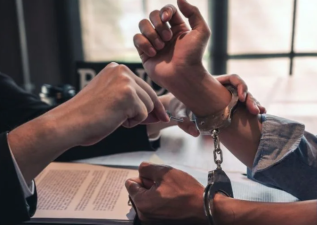
In the United States, the law provides strict penalties for false accusation. False accusation refers to the intentional fabrication or distortion of facts to falsely accuse someone of a crime to a judicial authority or other person. This behavior not only causes severe psychological trauma and reputational damage to the accused, but also threatens social justice and the rule of law.
Therefore, US law imposes very severe penalties for false accusations.
In the United States, the penalties for false accusation vary depending on the circumstances. According to the United States Criminal Code, false accusers can face criminal charges and penalties. Specifically, if the accused is criminally prosecuted for the false accusation, the accuser can face perjury or false light proceedings, potentially resulting in imprisonment or fines. False accusers can also face civil lawsuits, including claims for damages and apologies.
In the United States, the law also protects the rights of those falsely accused through other means. Section IV of the United States Code provides for due process, requiring the government to provide sufficient evidence before charging and to follow due process to ensure that the rights of the accused are fully protected. US law also provides for the right to counsel, meaning accused individuals have the right to free legal assistance and fair treatment during legal proceedings.
In addition to legal protections, American society also actively takes measures to protect the rights of those falsely accused. Non-governmental organizations, civil society groups, and media organizations offer support and assistance to those falsely accused, providing information, funding, and public opinion. Social leaders and leading lawyers actively advocate for and promote anti-false accusation campaigns to raise public awareness and concern about the issue, thereby better protecting the rights of those falsely accused.

What to do if you are falsely accused
- Respond calmly to a false accusation and quickly collect all types of evidence, such as witness statements, chat logs, and surveillance footage, which can effectively prove your innocence.
- Report the case promptly and fully cooperate with the investigation, honestly explaining the circumstances and your position.
- You may wish to retain a lawyer to assist you in the investigation. The lawyer can protect your rights according to the law, guide you on how to properly navigate the investigation process, and prevent adverse consequences due to unfamiliarity with legal procedures. 4. During the litigation stage, you must proactively exercise your right to defense, vigorously refute the accuser's accusations, and seek justice through legal channels. In short, if you are falsely accused, you must act in accordance with the law and utilize legal means to protect your legitimate rights and interests.
How to Protect Your Rights Through Legal Channels After a False Accusation
After being falsely accused, you can pursue your rights through the following legal channels:
- Collect Evidence: Collect evidence proving the false accusation as soon as possible, such as chat logs, witness testimony, and surveillance video. This evidence is the basis for defending your rights.
- Reporting the Police: If the false accusation constitutes false accusation and framing (fabricating facts to falsely accuse another with the intent to subject them to criminal prosecution, and the circumstances are serious), you can report it to the police, who will initiate an investigation.
- Filing a Civil Litigation: You can sue the false accuser in court and demand that they bear civil liability for tort, such as ceasing the infringement, eliminating the negative impact, offering an apology, or compensating for losses.
- Administrative Channels: If the false accusation occurs during administrative proceedings, you can report it to the relevant administrative agency and request that it handle the matter in accordance with the law and clarify the facts. When defending your rights, remain calm and follow the law and regulations. If necessary, seek legal assistance.

Legal options after being falsely accused
If you are falsely accused, you can choose the following legal options depending on the specific circumstances:
Civil Litigation: If the false accusation has damaged your reputation or other civil rights, you can file a civil lawsuit in court, seeking civil liability for the infringing party to cease the infringement, restore your reputation, eliminate the negative impact, issue an apology, and compensate for losses. You will need to prepare a complaint and evidence proving the damage to your reputation and the false accusation.
